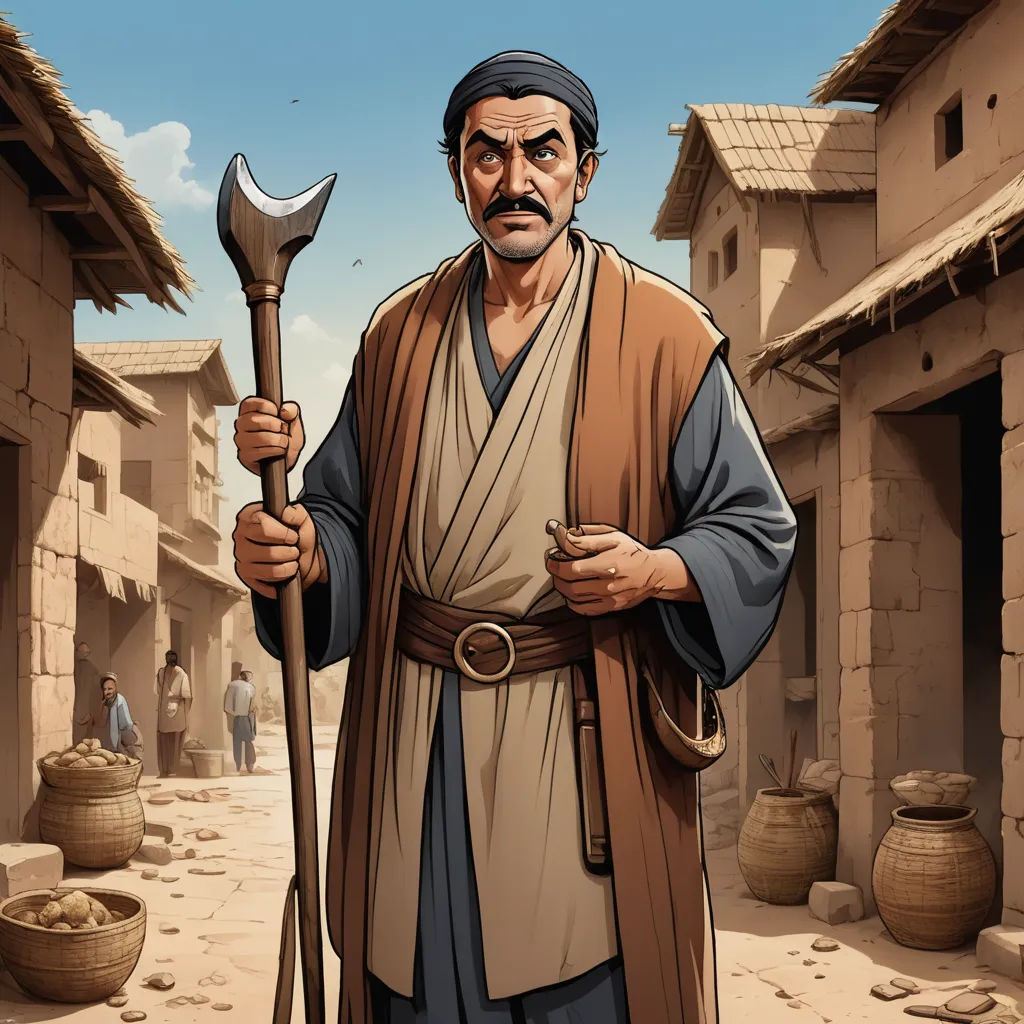
Ali Baba and the Forty Thieves
By slmnco

01 Apr, 2024

In the bustling, ancient city of Baghdad, there lived a poor but kind-hearted woodcutter named Ali Baba. He lived a simple life, cutting wood in the nearby forest and selling it in the local market.

One day, while Ali Baba was in the forest, he noticed a group of men on horseback. He hid behind a tree and watched as the men approached a seemingly ordinary rock face.

The leader of the gang, Cassim, stepped forward and said a strange phrase, "Open Sesame!" Suddenly, the rock face slid open, revealing a hidden cave.

Once all the thieves had entered, the cave closed behind them. Ali Baba was astounded. He waited patiently until the thieves left the cave and rode away.

Having memorized the secret phrase, Ali Baba approached the rock face and uttered, "Open Sesame!" To his amazement, the cave opened, revealing endless treasures inside.

He was dazzled by the sight of gold, jewels, and precious artifacts. With a heavy heart, Ali Baba decided to take only what he needed to improve his life.

But when his wealth suddenly increased, his greedy brother, Kasim, grew suspicious. Ali Baba, unable to lie to his brother, revealed the secret of the cave.

Blinded by greed, Kasim went to the cave and filled his pockets with treasures. But in his excitement, he forgot the magic phrase and was trapped when the cave closed.

When Kasim didn't return, Ali Baba went to the cave. He found his brother lifeless, and with a heavy heart, he brought Kasim's body back to give him a proper burial.

Noticing the missing treasure and Kasim's body, the thieves realized someone else knew their secret. Enraged, they vowed to find and punish the intruder.

The thieves searched relentlessly for the unknown trespasser. Meanwhile, Ali Baba, aware of the danger, had stopped visiting the cave and lived his life cautiously.

One day, a thief disguised as an oil merchant visited Ali Baba's house. He had hidden his fellow thieves in large oil jars, intending to attack Ali Baba at night.

Ali Baba's servant girl, Morgiana, grew suspicious of the merchant. She discovered the hidden thieves and poured boiling oil into the jars, killing them.

Morgiana warned Ali Baba about the danger. They confronted the disguised thief and managed to overpower him, thus saving themselves from the planned attack.

When Cassim learned of his men's fate, his rage knew no bounds. He decided to deal with Ali Baba himself, vowing to take revenge for his fallen men.

Meanwhile, Ali Baba, grateful for Morgiana's bravery, rewarded her with her freedom. He also warned her about Cassim's possible retaliation.

As Cassim approached Ali Baba's house, Morgiana recognized him. She swiftly devised a plan and performed a dance for Cassim, distracting him.

During the dance, she got close enough to Cassim and plunged a dagger into his heart. With his last breath, Cassim fell to the floor, defeated.

The death of Cassim marked the end of the thieves' reign of terror. Ali Baba thanked Morgiana for her courage and quick thinking, ensuring her safety and prosperity.

Ali Baba decided to close the chapter of the cave and its treasures. He returned to his simple life, using his remaining wealth to help the poor and needy.

The tale of Ali Baba, Morgiana, and the forty thieves spread throughout Baghdad. They became symbols of courage, intelligence, and the triumph of good over evil.

From that day forth, Ali Baba lived a peaceful life, filled with respect and admiration from his fellow townsfolk. The story of his bravery became a legend, passed down from generation to generation.

And so, the tale of Ali Baba and the forty thieves serves as a timeless reminder of the power of kindness, bravery, and wisdom in the face of greed and evil.